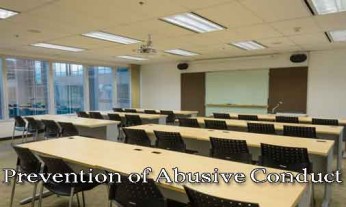 It has become extremely common for employers to encourage their new employees to sign binding arbitration agreements, in which they waive their right to a jury trial. (These agreements are intended to compel the employees to resolve any future disputes they have with the company via arbitration, which is generally cheaper than going to court.)
It has become extremely common for employers to encourage their new employees to sign binding arbitration agreements, in which they waive their right to a jury trial. (These agreements are intended to compel the employees to resolve any future disputes they have with the company via arbitration, which is generally cheaper than going to court.)
Some employers request that their employees sign a binding arbitration agreement directly, but others take a different approach. They simply include an arbitration agreement in their employee handbook, and then ask their employees to sign a statement agreeing to the terms of the handbook.
The advantage to the latter approach is that if the employer decides to update certain aspects of its arbitration agreement, it can revise the handbook, and then ask employees to acknowledge the changes – rather than asking them to sign brand new arbitration agreements.
Court Challenges to Binding Arbitration Clauses in Employee Handbooks
However, one problem that employers have had with this approach is that in some cases, courts have ruled that it is insufficient. One such case was Nelson vs. Cyprus Bagdad Copper Corporation, in which the Ninth Circuit Court of Appeals held that an employee was not compelled to arbitrate, despite an arbitration clause in the company’s employee handbook.
When the employee was hired, he signed the following statement:
“I have received a copy of the Cyprus Bagdad Copper Corporation Handbook…and understand that the Handbook is a guideline to the company’s policies and procedures. I agree to read it and understand its contents. If I have any questions regarding its contents I will contact my supervisor or Human Resources Representative.”
The Court ruled that arbitration cannot be compelled unless the employee has knowingly agreed to waive his or her right to a jury trial. And because the statement above did not mention that the handbook contains an arbitration clause – or that signing the statement constituted a waiver of the right to a judicial forum – the Court ruled that the employee had not knowingly made such a waiver.
Ashbey vs. Archstone Prop. Mgmt.
But what if an employee signs an agreement to abide by the terms of a handbook, and the agreement itself mentions the duty to arbitrate? In May 2015, the Ninth Circuit ruled that such an agreement is enough to compel arbitration.
In Ashbey vs. Archstone Prop. Mgmt., the Court ruled that an employee waived his right to a jury trial when he signed an agreement that contained the following language:
“I acknowledge that I have received directions as to how I may access the Archstone Company Policy Manual, including the Dispute Resolution Policy. I understand that Archstone can administer, interpret, discontinue, supplement, amend or withdraw any of the employment and personnel policies and procedures set forth in this Company Policy Manual. I understand that it is my responsibility to understand the Archstone Company Policy Manual, including the Dispute Resolution Policy, and to adhere to all of the policies contained herein.”
The Court held that because the agreement “expressly notified” the employee about the dispute resolution policy – and did so twice – it was sufficient to compel arbitration. The Court also held that it is not a requirement for the statement to actually list the terms of the policy.
Crafting an Effective Binding Arbitration Agreement Policy
If you want to feel secure that your company’s arbitration agreements will stand up in court, the employment and labor law attorneys at Beck Law P.C., in Santa Rosa can help. You can call or email our office today to schedule a consultation.









